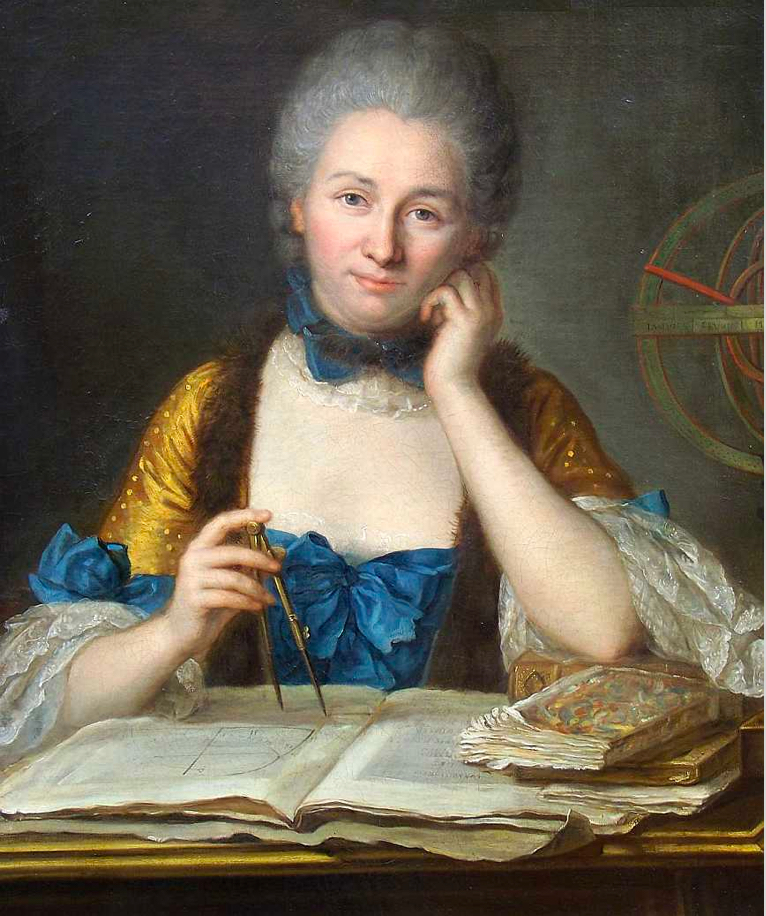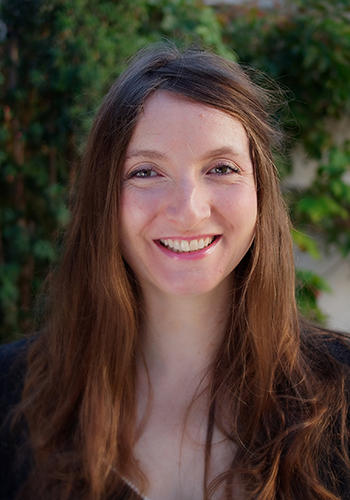Pourquoi la tech ?
Petite, j’aimais observer la nature. Les papillons par exemple, leur légèreté m’intriguait, de quoi étaient-ils faits ? Comment mettaient-ils en mouvement leurs si grandes ailes ? Comment pouvaient-ils être si magnifiquement colorés ?
Je crois que mon attrait pour la chimie remonte au jour où j’ai compris que toute matière était composée d’atomes figurant sur le tableau de Mendeleïev. Le monde était sous mes yeux. Je me suis longuement questionnée. Je pouvais reconnaître le fer, l’argent, l’or ; envisager la composition de petites molécules comme l’oxygène ou l’eau mais qu’en était-il des fleurs, des animaux, du corps humain ? Aller au cœur de la matière, comprendre l’assemblage complexe des atomes d’une molécule et le rôle qu’elle joue grâce à cette organisation est ce qui suscite encore aujourd’hui ma curiosité de chercheur.
Votre parcours ?
J’ai une formation de chercheur en physico-chimie. Au terme de deux années de classes préparatoires aux grandes écoles, j’ai intégré l’École Nationale Supérieure d’Ingénieurs de Chimie et Physique de Bordeaux (aujourd’hui ENSMAC) et complété mon cursus par un doctorat CNRS/Solvay sur la rhéologie des écoulements de fluides complexes à l’échelle sub-micronique.
Votre première expérience professionnelle dans la tech ?
J’ai rejoint le groupe Solvay en 2012, en tant qu’ingénieur de recherche au Laboratoire du Futur, à Bordeaux. À ce poste pendant 6 ans, je mettais au point des formulations moussantes pour la récupération assistée du pétrole. Ces recherches étaient épanouissantes : j’étais amenée à publier, présenter mes travaux de recherche en conférence internationale et promouvoir l’expertise de Solvay auprès de potentiels clients. Le travail en collaboration avec les experts de l’Institut Français du Pétrole et des Énergies Nouvelles (IFPEN) et les sociétés pétrolières en Amérique du Nord et au Moyen-Oriental était particulièrement enrichissant.
J’ai ensuite saisi l’opportunité d’une expatriation de 3 ans aux États-Unis, au sein de Solvay US en tant que manager d’une équipe Automatisation et Robotique. J’y ai développé des compétences essentielles à mon poste actuel, autant humainement que scientifiquement.
Que faites-vous aujourd’hui et pourquoi ?
Depuis mon retour en France, au Laboratoire du Futur, j’occupe un poste de manager d’équipe. J’orchestre au quotidien le travail d’une trentaine de chercheurs en Physico-Chimie et en Automatisation & Robotique.
Mon travail actuel peut s’inscrire dans une démarche sociétale de diminution de notre emprunte carbone. Solvay a pris un engagement ambitieux en ce sens à l’horizon 2030. En tant qu’acteur de l’innovation du groupe, notre équipe est impliquée dans une double transition écologique et digitale. Nous travaillons à optimiser les performances des matériaux pour les batteries et les piles à hydrogène par exemple, ou encore au positionnement de produits biosourcés, biodégradables et biocompatibles dans des formulations diverses, de shampoings, de formulations agrochimiques, ou de peintures.
D’autre part, le volet automatisation & robotique de mon poste est passionnant. Je suis convaincue que l’essor de l’intelligence artificielle constitue un atout incroyable pour nous chercheurs chimistes. Je vois un fort potentiel dans les algorithmes d’aide à la décision, issus des recherches en sciences cognitives. Nous échangeons au quotidien avec les experts du domaine et perfectionnons ces outils. L’un des aspects les plus plaisants de mon métier réside, je crois, dans son interdisciplinarité et donc dans l’interdépendance de nos succès.
Vos atouts pour ce poste ?
Je dirais que j’identifie rapidement les défis à relever et que je sais définir la trajectoire qui mène à l’objectif. Reste ensuite à synchroniser les compétences de chacun. Manager est un poste difficile, sur lequel je dois concilier les compétences scientifiques et la gestion des compétences humaines. En tant que chercheur, je travaille toujours avec passion, c’est mon atout le plus fort.
Vos défis passés, vos ratés, vos grands moments de solitude ?
L’apprentissage, c’est comme monter un escalier. Grimper une marche demande un effort, il faut parfois s’obstiner et bien sûr, il m’est arrivé de tomber.
À 19 ans, j’ai obtenu une note éliminatoire à l’oral d’anglais du concours des petites Mines d’Albi. Mon professeur de l’époque m’avait dit : « Parler anglais ne peut pas être un obstacle quand on est par ailleurs capable de mémoriser de multiples démonstrations mathématiques ». Elle m’a convaincue de partir en stade de langue en immersion, en Angleterre. Cela a tout changé pour moi. Grâce aux ateliers théâtre et à la complicité d’autres étudiants étrangers, j’ai pris confiance en moi. C’est une expérience que j’aime partager avec les étudiants qui rencontrent des difficultés similaires. Ne rien lâcher, se réinventer constamment.
Vos meilleurs moments, les succès dont vous êtes fière ?
Le jour de l’obtention de mon doctorat est un souvenir particulier, bien sûr mais le moment le plus enrichissant de ma carrière est sans doute mon expatriation aux États-Unis.
Il a d’abord fallu convaincre mon mari de démissionner, de vendre notre maison et de partir avec notre fille de 18 mois. Un vrai challenge ! Dans l’avion, j’avais tout de même une sensation de vertige mais notre installation s’est bien passée. Mon mari a obtenu un contrat américain avec sa société française et l’aventure a commencé. J’ai pris le rôle de manager de l’équipe Automatisation et Robotique, constituée de 4 personnes et lancé l’activité dans 2 centres de recherches aux US.
Cette expérience m’a transformée. Elle m’a permis de prendre du recul sur notre culture et notre société. Les États-Unis sont un modèle de diversité et d’inclusion que je trouve riche de sens.
Enfin, cette année, on m’a félicitée pour avoir présenté les travaux de notre équipe dans 3 conférences sur le thème du laboratoire orchestré : robotique et intelligence artificielle au service de l’innovation en chimie. La reconnaissance de mes pairs, d’éminents chercheurs, qui ont été directeurs scientifiques de Solvay, du CNRS, prix Nobel de chimie ou médaillés Fields de mathématiques constitue la meilleure des récompenses pour mon équipe et moi.
Des personnes qui vous ont aidée/marquée ou au contraire rendu la vie difficile ?
J’éprouverai toujours de la gratitude envers mes directeurs de thèse, académique et industriel qui se sont énormément impliqués dans ma progression. Je ne cesse d’ailleurs d’appliquer leur méthode : poser des attentes claires sur la prochaine étape à franchir, sans envisager que je puisse ne pas y parvenir.
Mais je ne saurais rendre compte de toutes les personnes qui m’ont aidée. J’ai plaisir à travailler avec des experts. Chaque rencontre est une opportunité d’apprentissage.
Vos envies et défis à venir ?
Poursuivre ma mission : travailler au cœur de l’évolution de nos sociétés. Être actrice de la transformation digitale et durable de notre recherche et de notre industrie et pourquoi pas promouvoir la place des femmes au sein de la Tech !
Et que faites-vous en dehors de votre travail ?
Je répondrais que depuis la naissance de mes enfants, il s’agit plutôt d’activités ressources que de hobbies : trouver le moyen de s’évader en très peu de temps.
Je fais du sport. C’est un bon régulateur de stress. J’ai pratiqué la natation et le Pilates pendant de nombreuses années.
J’ai aussi une grande sensibilité pour l’art. Rencontrer des artistes qui vivent leur passion : c’est inspirant ! Au musée, à l’opéra ou lors d’expositions dans des ateliers en joaillerie et haute-couture ; je m’émerveille. J’aime aussi passer du temps dans d’autres pays, encore une fois pour aller à la rencontre d’une nouvelle culture. Ma sœur vit au Danemark. J’attends chaque visite avec impatience.
Vos héroïnes (héros) de fiction, ou dans l’histoire ?
J’ai eu la chance de participer à la remise du Prix Solvay pour la science du Futur en 2022. La lauréate, Pr Katalin Karikó, a exposé son parcours, semé d’embûches. Sa conviction scientifique : l’ARN messager renfermait un fort potentiel d’applications thérapeutiques. Elle a reçu depuis le prix Nobel pour la mise au point le vaccin contre la Covid 19 et l’espoir de traitement contre le cancer que représente aujourd’hui l’ARN messager.
Son discours terminé, j’avais les larmes aux yeux. Sa persévérance forçait l’admiration. Elle a adressé des messages pour les jeunes chercheurs, qui raisonnent encore aujourd’hui en moi : 1) travaillez avec conviction, 2) collaborez sans frontière, 3) lisez : une grande partie des questions que vous vous posez ont été étudiées par d’autres chercheurs, partez à la recherche des articles « pépites », 4) ne croyez pas que tout est rose dans le monde de la recherche académique. Vous avez un rôle à jouer dans l’industrie.
Votre devise favorite ?
Albert Einstein : « C’est le rôle essentiel du professeur d’éveiller la joie de travailler et de connaître ». Encore une fois, j’éprouve une grande gratitude pour l’éducation et l’éveil à la connaissance dont j’ai pu bénéficier et que je m’efforce de transmettre à mon tour.
Un livre à emporter sur une île déserte ?
Je lis le journal du Monde chaque jour. Je garderais cette habitude pour me sentir connectée au monde.
Un message ou un conseil aux jeunes femmes ?
Les conseils de Katalin Karikó, un exemple pour toute jeune femme scientifique, me paraissent être les bons.
Et peut-être pour conclure, je reviendrais au papillon, maillon essentiel de la biodiversité dont l’appauvrissement me préoccupe. Il est possible d’être ingénieur-chercheur en chimie, d’être une femme et de donner du sens à sa mission. Mon message est donc le suivant : La Tech et son industrie façonnent le monde d’aujourd’hui. Si vous le pouvez, devenez acteur de son développement durable et de sa transformation pour atteindre les objectifs de neutralité carbone, indispensables à l’humanité. Parce que les efforts de recherche à fournir sont sans précédent. Notre CEO l’exprime ainsi : en tant que chimiste, mais aussi que citoyen, nous faisons partie du problème et de la solution.


